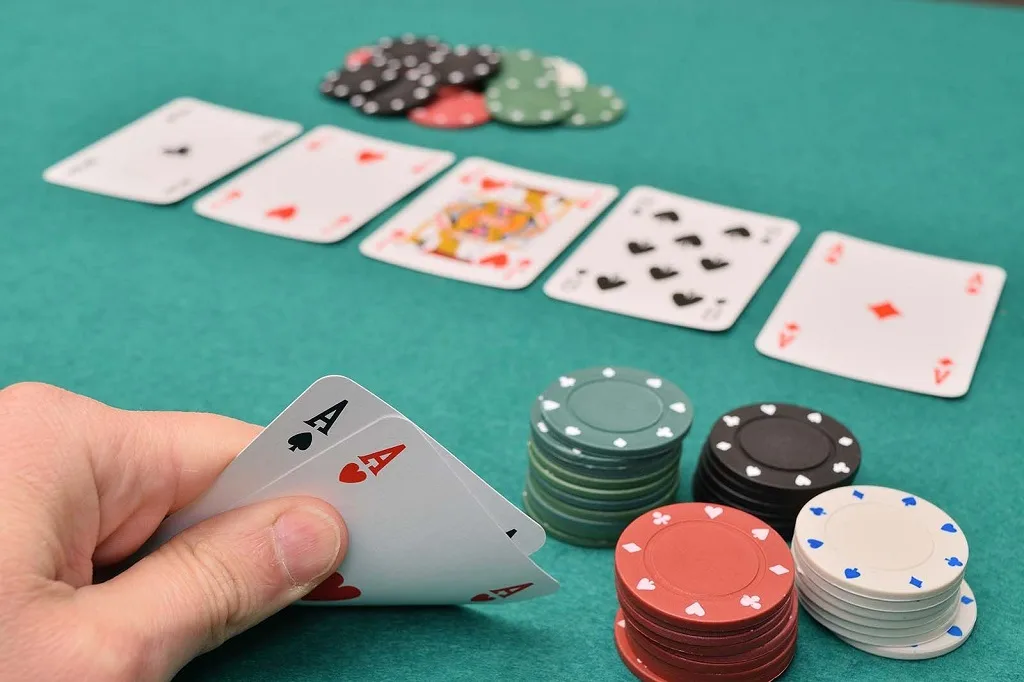Texas Hold’em Poker: Expert Tips for Winning

Texas Hold’em poker is one of the most popular variants of poker played worldwide. This guide will walk you through the basics, strategies, and tips to help you improve your game and increase your chances of winning. Whether you are a beginner or an experienced player, this guide will provide valuable insights to enhance your poker skills.
Understanding the Basics of Texas Hold’em Poker
The objective of Texas Hold’em poker is to create the best possible five-card hand using a combination of the two private cards dealt to you and the five community cards on the table. Each player receives two private cards, and five community cards are dealt face up in the center of the table. The game consists of four betting rounds: pre-flop, flop, turn, and river.
The game begins with the two players to the left of the dealer posting the small blind and big blind, respectively. These are forced bets to ensure there is money in the pot to play for. Each player is then dealt two private cards, and the first betting round (pre-flop) begins. Players can fold, call, or raise. After the pre-flop betting round, three community cards (the flop) are dealt, followed by another round of betting. This process continues until all five community cards are dealt, and the final betting round is completed.
Key Strategies for Winning at Texas Hold’em
Understanding and implementing effective strategies can significantly improve your chances of winning at Texas Hold’em poker. Here are some key strategies to consider:
Play Tight and Aggressive
A tight and aggressive playing style involves playing fewer hands but betting and raising aggressively when you do play. This strategy helps you avoid losing money on weak hands and maximizes your winnings on strong hands. Focus on playing premium hands like high pairs, and strong aces, and avoid getting involved with marginal hands.
Position Matters
Your position at the table is crucial in Texas Hold’em poker. Being in a late position allows you to see how other players act before making your decision. This information can help you make more informed decisions and capitalize on the weaknesses of your opponents. Try to play more hands when you are in a late position and fewer hands when you are in an early position.
Advanced Techniques for Experienced Players
For experienced players looking to take their game to the next level, advanced techniques can give you an edge over your opponents. Here are a few advanced techniques to consider:
Bluffing and Semi-Bluffing
Bluffing is an essential part of poker, but it should be used sparingly and strategically. A successful bluff can force your opponents to fold better hands, allowing you to win the pot without a showdown. Semi-bluffing, on the other hand, involves betting or raising with a drawing hand that has the potential to improve. This technique increases your chances of winning the pot either by making your opponents fold or by hitting your draw.
Reading Your Opponents
Being able to read your opponents and understand their tendencies is a valuable skill in Texas Hold’em poker. Pay attention to their betting patterns, body language, and timing tells. Use this information to make more accurate decisions and exploit their weaknesses. Keep in mind that experienced players may also be trying to read you, so mix up your play to keep them guessing.
Common Mistakes to Avoid
Even experienced players can make mistakes that cost them money. Here are some common mistakes to avoid:
Playing Too Many Hands
One of the most common mistakes is playing too many hands. It’s important to be selective about the hands you play and avoid getting involved with weak or marginal hands. Playing too many hands can quickly deplete your chip stack and put you in difficult situations.
Ignoring Pot Odds
Pot odds are the ratio of the current size of the pot to the cost of a contemplated call. Understanding and calculating pot odds can help you make more informed decisions about whether to call, raise, or fold. Ignoring pot odds can lead to costly mistakes and missed opportunities to maximize your winnings.

Improving Your Poker Skills
Continuous improvement is key to becoming a successful Texas Hold’em player. Here are some tips to help you improve your poker skills:
Study and Practice
Invest time in studying the game and practicing your skills. Read books, watch videos, and participate in online forums to learn from experienced players. Practicing regularly, both online and in live games, will help you refine your strategies and become more comfortable at the table.
Review Your Play
After each session, take the time to review your play and analyze your decisions. Identify any mistakes you made and think about how you could have played differently. This self-reflection will help you learn from your experiences and improve your game over time.
In conclusion, mastering Texas Hold’em poker requires a combination of understanding the basics, implementing effective strategies, and continuously improving your skills. By following the tips and techniques outlined in this guide, you can enhance your poker game and increase your chances of winning. Remember to stay disciplined, be patient, and always strive to make the best possible decisions at the table.
